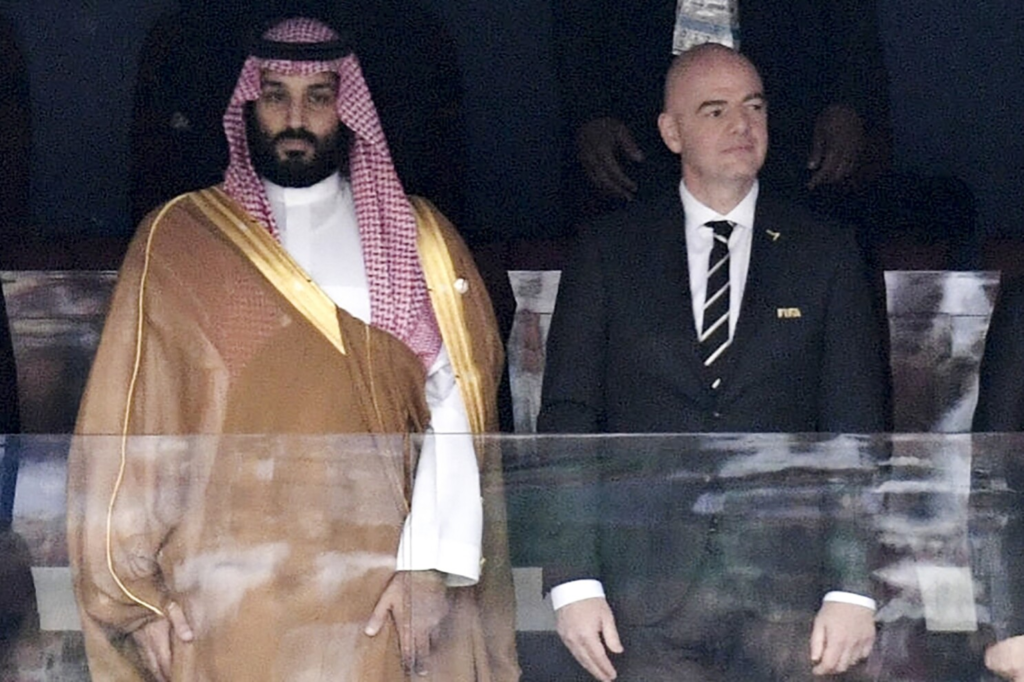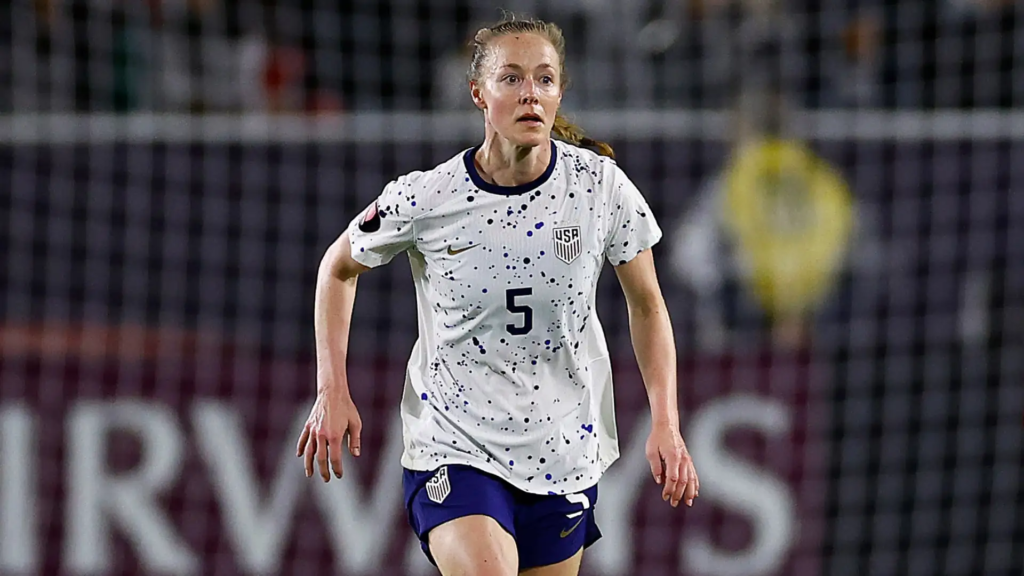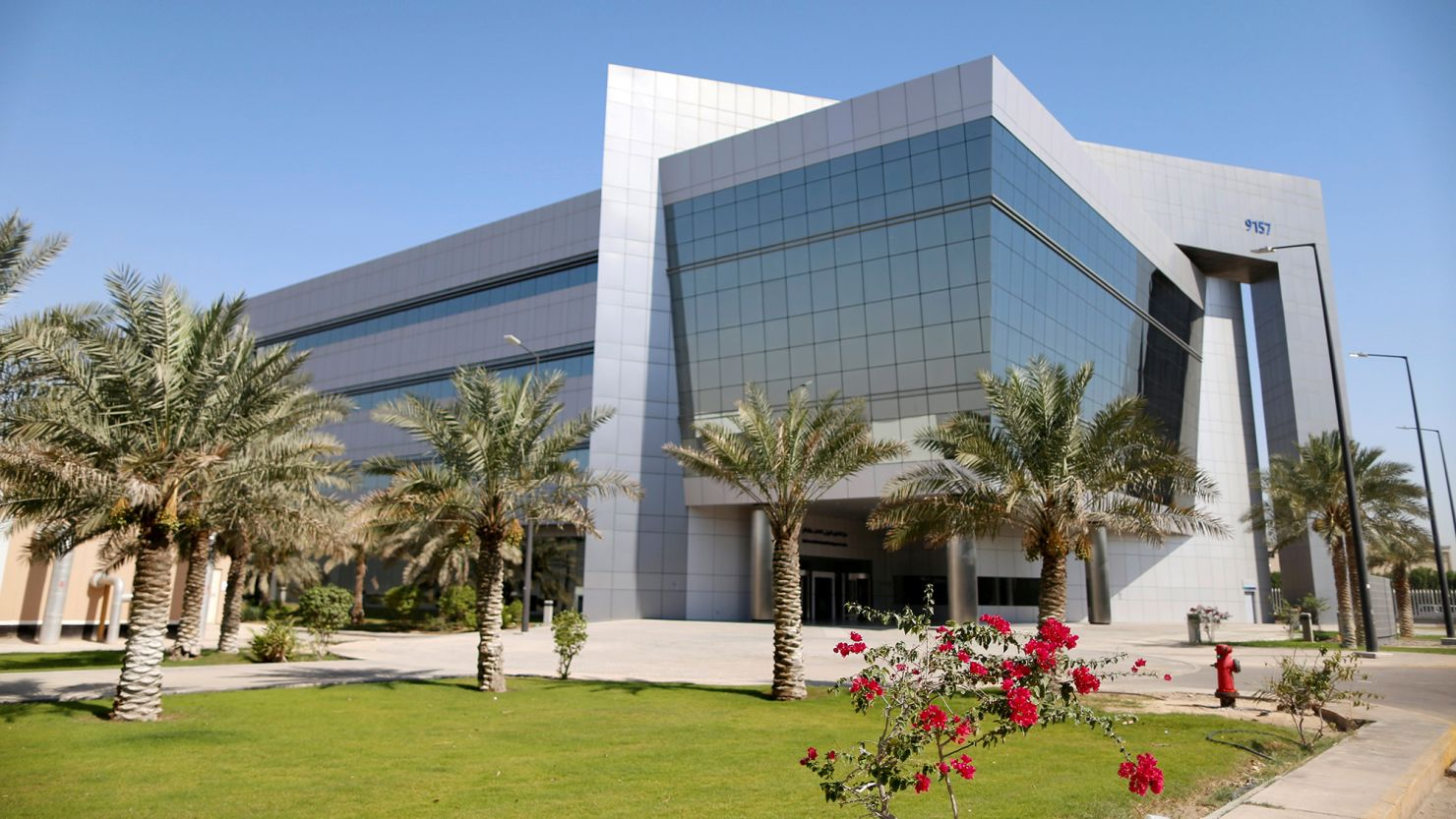In a remarkable display of unity and conviction, over 100 women footballers from across the globe have signed an open letter to FIFA, calling for the sport’s governing body to end its controversial sponsorship deal with Saudi oil giant, Aramco.
The letter, published by the advocacy group Athletes of the World, highlights the players’ concerns over Saudi Arabia’s human rights record, particularly with respect to the treatment of women and the LGBTQ+ community. The deal, which was announced in April 2023, has sparked widespread debate and dismay among athletes and human rights advocates alike.
The Controversial FIFA-Aramco Partnership
In April 2023, FIFA unveiled a new sponsorship agreement with Saudi Aramco, one of the world’s largest oil companies, giving the company sponsorship rights to major football events, including the 2026 Men’s World Cup and the 2027 Women’s World Cup.
This four-year partnership has been met with significant opposition, particularly within the women’s football community. Many players see the sponsorship deal as incompatible with the values of inclusivity and equality that the women’s game has long championed.
Read : Argentina Goalkeeper Martinez Suspended by FIFA for Two World Cup Qualifier Matches
The letter, which has been signed by 108 current and former women footballers, has voiced strong opposition to this partnership, calling it a “stomach punch” for women’s football. Among the notable signatories are Manchester City striker Vivianne Miedema and former US Women’s National Team (USWNT) captain Becky Sauerbrunn.
The players argue that Saudi Arabia’s poor human rights record, particularly its treatment of women and the LGBTQ+ community, makes Aramco an unsuitable partner for a sport that has worked hard to promote inclusion and equality.
Read : Palestinian Footballer Ahmad Abu al-Atta Dies After Airstrike Hits His Home in Gaza City
At the heart of the opposition is Saudi Arabia’s stance on gender and LGBTQ+ rights. While the kingdom has made some strides in improving the rights of women in recent years, such as lifting the ban on women driving, many restrictions remain.
For example, women still face limitations on their freedoms, such as the male guardianship system, which requires women to obtain permission from a male relative to travel or marry. Furthermore, homosexuality remains illegal in Saudi Arabia, with severe penalties for those found guilty of engaging in same-sex relationships.

The letter asks how FIFA can reconcile its values of promoting diversity and inclusion with the human rights record of Saudi Arabia, questioning whether women’s football can truly thrive when linked to a regime that has such restrictive policies. As the letter points out, many LGBTQ+ players are celebrated as heroes within the sport, but would be expected to promote the interests of a country that criminalizes the relationships they are in.
Players Take a Stand for Human Rights
The outcry from the players underscores their commitment to the values of equality and justice. Vivianne Miedema, one of the world’s top strikers and a vocal advocate for women’s rights in sport, spoke to the BBC about the issue.
“As footballers, and especially as women footballers, we carry the responsibility to show the world and the next generation what is right. This sponsorship is not right for what FIFA stands for, but also what we as women footballers stand for,” Miedema said.
The open letter addressed to FIFA president Gianni Infantino doesn’t mince words. It highlights the dissonance between FIFA’s stated goals of inclusivity and the realities of partnering with an entity tied to a regime with a troubling human rights record.
The players made it clear that they believe it is inappropriate to expect them, or any other player, to promote a company associated with such a government, especially during high-profile events like the 2027 Women’s World Cup.
This letter also represents a significant moment for women’s sports. It shows that women athletes are not just interested in breaking records on the pitch, but are also willing to use their platform to effect change. These players are challenging FIFA to live up to its ideals, to invest in sponsorships that align with the values the sport promotes, and to ensure that the progress made in women’s football isn’t undermined by questionable partnerships.

The athletes’ opposition goes beyond just concerns over the specific issue of LGBTQ+ rights. The letter also points to broader concerns about Saudi Arabia’s treatment of women. While the kingdom has made some incremental reforms, such as allowing women to attend football matches and participate in sports more freely, many players argue that these changes are superficial and that true equality for women remains a distant goal.
By associating with Aramco, they feel FIFA is giving a stamp of approval to a country that continues to limit women’s freedoms in significant ways.
FIFA’s Response and the Future of Women’s Football
When asked about the open letter, FIFA responded by emphasizing its commitment to inclusion and its partnerships with a variety of companies. A spokesperson for the organization stated that FIFA “values its partnership with Aramco and its many (other) commercial and rights partners.”
They added that sponsorship revenues generated by FIFA are reinvested back into the game, including investment in women’s football, which has seen a sharp increase in support in recent years.
FIFA has long relied on major sponsorships to fund its activities, and the Aramco deal is part of a broader trend of commercial partnerships with entities that have large financial backing. However, this approach has its detractors, especially when the sponsors in question are companies or regimes with problematic human rights records.
The decision to partner with Saudi Aramco is particularly controversial given the context of women’s football. The 2023 FIFA Women’s World Cup, held in Australia and New Zealand, was a record-breaking success, showcasing the growth and popularity of the women’s game.
However, the players’ letter argues that this success is being undermined by FIFA’s choice to partner with a company that is seen by many as being antithetical to the values of equality and inclusion that have been central to the growth of women’s football.
While FIFA has defended its decision, the players’ letter has intensified the debate around the role of corporate sponsorships in sports and the ethical responsibilities of governing bodies like FIFA. Many within the sport are now calling for greater scrutiny of these partnerships and for more transparency in how decisions are made.

In recent years, Saudi Arabia has made a concerted effort to increase its involvement in global sports, investing heavily in football, boxing, motorsports, and even esports. The kingdom’s strategy has been described as “sportswashing” by critics, who argue that it is using high-profile sporting events to improve its global image and distract from its human rights record.
The FIFA-Aramco partnership is just one example of this broader trend, and the opposition from women footballers highlights the ethical challenges that arise when sports and politics intersect.
The open letter from over 100 women footballers is a powerful statement of their commitment to human rights and equality. By calling on FIFA to sever ties with Saudi Aramco, these athletes are challenging the governing body to live up to the values it espouses. Their letter raises important questions about the role of corporate sponsorships in sports and whether financial considerations should outweigh ethical concerns.
The players’ stance has already sparked a global conversation about the future of women’s football and the importance of maintaining the sport’s integrity. It remains to be seen whether FIFA will respond to these concerns and reconsider its partnership with Aramco. However, one thing is clear: the women’s game is no longer just about football. It is also about fighting for the values of inclusivity, equality, and justice on and off the pitch.

